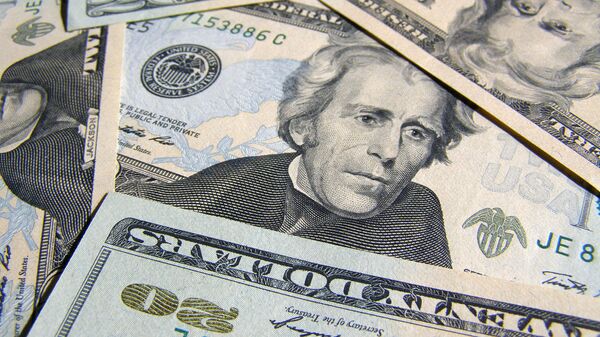Citing thousands of confidential documents obtained from former advisers and employees who worked with Fred Trump, POTUS' dad, the NY Times article alleges that Donald and his father, along with 45's other siblings, used various tax evasion schemes to prevent Uncle Sam from getting his hands on the family funds.
The investigative piece revealed that the majority of the Trump family's money was transferred to various relatives through sham companies that were established to disguise monetary gifts. The Trumps also used tax deductions to undervalue their real estate holdings, the publication claimed.
The media focus shouldn't solely rest on alleged schemes used by Trump and his family members, Rasmus told Radio Sputnik's Loud & Clear on Wednesday.
"All this in the New York Times is about a transfer of wealth from within the family, it doesn't really say anything about how Trump manipulated the tax system himself," Rasmus told hosts Brian Becker and John Kiriakou. "That's another story that hasn't even been plucked yet."
"What's missing here is the role of the foundation of the wealthy and the rich in doing all this. This isn't so radically different from a lot of other families who manipulate foundations to move their money around between each other," the professor added.
Hours after the story's publication, investigators from the New York State Department of Taxation and Finance announced that they would be launching a review into the allegations.
Though the review is unlikely to result in a criminal case, since the statute of limitations for tax evasion charges and the like have expired, it is possible that civil fines could be imposed on Trump.
"What are the institutions in the systems that allow this?" Rasmus questioned. "This is a big systemic problem, a bigger problem of the whole… tax system in this country."
While campaigning during the 2016 presidential race, 45 made claims that he was a self-made businessman who had only received a "small loan of a million dollars" from his dad, one that he had reportedly paid back with interest. This claim was shot down in the Times article, which reported that Trump actually collected today's equivalent of $413 million from his father throughout the course of his life.
Ted Rall, an editorial cartoonist who wrote a visual biography on POTUS, told Becker that while he was digging up information for his book, he found out about loads of schemes that were used by the family.
"There were lots of scams like that that were known back then that the media didn't do a very good job, shockingly, of reporting," Rall said. "I'm not really sure why this has taken so long to come to light."
In Rall's view, the Times' allegations should've been published before Trump managed to get into the White House. "One would have wanted to hear about this during the campaign," he said.
Trump has since responded to the New York Times, saying that the report on his finances was a mere "hit piece."



